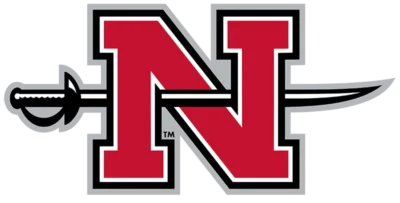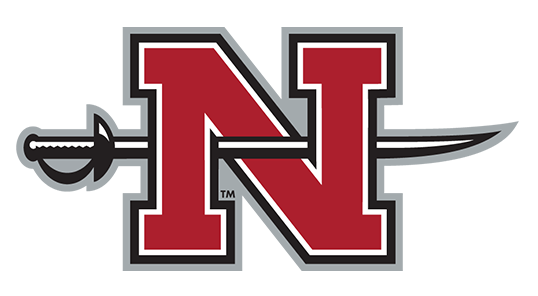CHEM 101. Chemistry I (Non-science majors). 3-3-0. Prerequisite: Eligibility for MATH 100 or MATH 117. The nature and properties of matter including the common elements and their compounds. Periodic classification, atomic and molecular theories, and the relation of atomic and molecular structure to chemical behavior. For non-science majors or those needing a review for a higher-level chemistry. Degree credit will not be given for both CHEM 101 and 105. [LCCN: CCEM 1103] (40.0501)
CHEM 102. Chemistry II (Non-science majors). 3-3-0. Prerequisite: CHEM 101. A continuation of CHEM 101. A terminal course for students who do not plan to enroll in additional chemistry courses. Sp only. Degree credit will not be given for both CHEM 102 and 106. [LCCN: CCEM 1113] (40.0501)
CHEM 105. Chemistry I (Science majors). 3-3-0. Prerequisite: C or better MATH 101. Nature and properties of matter including the common elements and their compounds. Periodic classification, atomic and molecular theories, nuclear chemistry, and the relation of atomic and molecular structure to chemical behavior, stoichiometry, nomenclature. For students needing more than one year of chemistry. Degree credit will not be given for both CHEM 101 and 105. [LCCN: CCEM 1123] (40.0501)
CHEM 106. Chemistry II (Science majors). 3-3-0. Prerequisite: C or better in CHEM 105. A continuation of CHEM 105 with emphasis on solutions, chemical equilibrium, thermodynamics, kinetics, acid base chemistry, electrochemistry and ionic equilibrium. Degree credit will not be given for both CHEM 102 and 106. [LCCN: CCEM 1133] (40.0501)
CHEM 109. General, Organic, and Biological Chemistry. 3-3-0. Prerequisite: Eligibility for MATH 100 or MATH 117. Emphasis is on broad aspects of general, organic, and biochemistry necessary for the comprehension of biological processes occurring within the human body. [LCCN: CCEM 1003] (40.0599)
CHEM 110. Chemistry I+II Lab (Science majors). 2-0-6. Prerequisite or co-requisite: CHEM 106. A laboratory course for CHEM 105 and 106. Experiments may be performed at an approved off-campus laboratory. Degree credit will not be given for CHEM 110 and 111, 112, 113 or 114. [LCCN: CCEM 1132] (40.0501)
CHEM 111. Chemistry I Lab (Science majors). 1-0-3. Prerequisites: C or better or current registration in CHEM 106. Basic laboratory techniques related to the topics in Chemistry I (Science Majors) Degree credit will not be given for CHEM 111 and 110 or 113. [LCCN: CCEM 1121] (40.0501)
CHEM 112. Chemistry II Lab (Science majors). 1-0-3. Prerequisites: C or better in CHEM 111 and C or better in CHEM 106. Basic laboratory techniques related to the topics in Chemistry II (Science Majors). Degree credit will not be given for CHEM 112 and 110 or 114. [LCCN: CCEM 1131] (40.0501)
CHEM 113. Chemistry I Lab (Chemistry majors). 1-0-3. Prerequisites: Chemistry major and C or better or current registration in CHEM 105. A laboratory course for CHEM 105. Degree credit will not be given for CHEM 113 and 110 or 111. [LCCN: CCEM 1121] (40.0501)
CHEM 114. Chemistry II Lab (Chemistry majors). 1-0-3. Prerequisites or co-requisites: CHEM 106 and 113. A laboratory course for CHEM 106. Degree credit will not be given for CHEM 114 and 110 or 112. [LCCN: CCEM 1131] (40.0501)
CHEM 208. Organic and Biological Chemistry for the Health Sciences. 3-3-0. Prerequisite: CHEM 101 or CHEM 105. Emphasis is on practical aspects of organic chemistry necessary for the comprehension of biological processes occurring within the human body. A course designed for students in various health related programs. Degree credit will not be given for both CHEM 208 and 435. (40.0599)
CHEM 221. Organic Chemistry I. 3-3-0. Prerequisite: CHEM 106. A basic study of the physical and chemical properties of organic compounds. Such concepts as stereoisomerism, conformational analysis, molecular orbital theory, and transition state theory are introduced to demonstrate the correlation of structure and chemical reactivity. [LCCN: CCEM 2213] (40.0504)
CHEM 222. Organic Chemistry II. 3-3-0. Prerequisite: C or better in CHEM 221. A continuation of CHEM 221. [LCCN: CCEM 2223](40.0504)
CHEM 226. Organic Chemistry Laboratory. 2-0-6. Prerequisite: CHEM 110, 112, or 114. Prerequisite or co-requisite: CHEM 222. An introduction to the study of the properties and preparation of organic compounds. [LCCN: CCEM 2221 or 2222] (40.0504)
CHEM 300. Quantitative Analysis. 3-3-0. Prerequisites: CHEM 106 and either 110, 112, or 114. The theory of gravimetric and volumetric analysis, with emphasis on acid base equilibria and titration, oxidation reduction equilibria and titration, formation and properties of precipitates, and techniques of analysis. (40.0502)
CHEM 302. Quantitative Analysis Laboratory. 2-0-6. Prerequisite or co-requisite: CHEM 300. The course includes determinations which illustrate the theories of gravimetric and volumetric analyses. (40.0502)
CHEM 303. Physical Chemistry I. 3-3-0. Prerequisites: MATH 165, CHEM 221 and PHYS 102 or 202. The study of three states of matter, elementary thermodynamics thermochemistry, solutions, homogeneous and heterogeneous equilibria, reaction kinetics, and atomic and molecular structure. (40.0506)
CHEM 304. Physical Chemistry II. 3-3-0. Prerequisite: CHEM 303. A continuation of CHEM 303. Sp only. (40.0506)
CHEM 305. Physical Chemistry Laboratory I. 1-0-3. Prerequisite or Co-requisite: CHEM 303. A quantitative study of physicochemical properties of substances. Fa only. (40.0506)
CHEM 306. Physical Chemistry Laboratory II. 1-0-3. Prerequisite: CHEM 305. Co-requisite: CHEM 304. A continuation of CHEM 305. Sp only. (40.0506)
CHEM 319. Introduction to Chemical Literature. 1-1-0. Prerequisites: CHEM 222, 300. Important sources of chemical information, traditional and electronic searching techniques, and software tools to assist in writing scientific papers. (40.0599)
CHEM 327. Intermediate Organic Chemistry. 2-1-3. Prerequisite: CHEM 226. Continued laboratory study of the properties, preparation, and analysis of organic compounds. Experimental reports incorporate scholarly organic chemical literature as a primary source. (40.0504)
CHEM 340. Botanical Chemistry. 3-3-0. Prerequisites: BIOL 156 and CHEM 222. Introduction to the core concepts of botanical medicinal chemistry and the development of therapeutics including current medicines, principles of research and development, and regulatory approval. (40.0599)
*CHEM 405. Instrumental Analysis. 3-3-0. Prerequisites: CHEM 300, 302 and 303. Modern physicochemical instrumental analysis including spectroscopic, chromatographic, and electrochemical methods. (40.0502)
*CHEM 407. Instrumental Analysis Laboratory. 2-0-6. Prerequisite or Co-requisite: *CHEM 405. A laboratory course designed to accompany *CHEM 405 including experiments involving spectroscopic, chromatographic, and electrochemical methods of analysis. (40.0502)
*CHEM 412. Inorganic Chemistry. 3-3-0. Prerequisite: CHEM 304. Descriptive chemistry of the elements as a function of chemical periodicity. Electronegativity and its relation to covalent and ionic bonding. Acids and bases, complex ions, non aqueous solvents, and structures of inorganic compounds. Fa only. (40.0503)
*CHEM 413. Inorganic Preparations. 1-0-3. Prerequisite: CHEM 302 and 306. Co-requisite: CHEM 412. The syntheses and systematic characterization of inorganic compounds. Fa only. (40.0503)
CHEM 421. Advanced Organic Chemistry. 3-3-0. Prerequisite: C or better in CHEM 222. A study of reaction mechanisms, stereochemistry, molecular rearrangements, and other selected topics. (40.0504)
*CHEM 435. Biochemistry I. 3-3-0. Prerequisite: CHEM 222. Structure of proteins, nucleic acids, membranes, membrane channels and pumps; kinetics and mechanism of enzyme catalysis; glycolysis, citric acid cycle; and mechanism of oxidative phosphorylation. [LCCN: CBIO 3403] (26.0202)
*CHEM 436. Biochemistry II. 3-3-0. Prerequisite: *CHEM 435. Pentose phosphate pathway; gluconeogenesis; metabolism of glycogen; fatty and amino acids; urea cycle; photosynthesis; biosynthesis of membrane lipids; steroids; amino acids; hemes, nucleotides and integration of metabolism. Sp only. [LCCN: CBIO 4413] (26.0202)
*CHEM 437. Biochemistry Laboratory I. 1-0-3. Prerequisite: CHEM 226. Co-requisite: CHEM 435. A laboratory course designed to accompany CHEM 435. [LCCN: CBIO 3401] (26.0202)
*CHEM 438. Biochemistry Laboratory II. 1-0-3. Prerequisite: CHEM 437. Co-requisite: CHEM 436. A laboratory course in advanced biochemical techniques designed to accompany CHEM 436. Sp only. [LCCN: CBIO 4411] (26.0202)
CHEM 440. Botanical Chemistry Methods. 2-0-6. Prerequisites: CHEM 340, CHEM 407, and permission of the department head. Research and development of botanical derived molecules and the optimization and characterization of industrial operating procedures under the joint guidance of industry scientists and a Nicholls faculty member. (40.0599)
CHEM 450. Senior Seminar. 1-1-0. Prerequisite: CHEM 306 and 319. A capstone course in which students prepare and present a seminar on a topic approved by the instructor and take an exit examination assessing their knowledge of chemistry. (40.0599)
CHEM 451. Research Problems. 2-1-3. Prerequisites: Permission of department head. Selected research projects are performed under faculty supervision. No student will be permitted to use more than 8 semester hours of research problems toward graduation. May be repeated for credit if content differs. (40.0599)
CHEM 452. Research Problems. 4-2-6. Prerequisites: CHEM 306 and permission of the department head. Selected research projects are performed under faculty supervision. No student will be permitted to use more than 8 semester hours of research problems toward graduation. May be repeated for credit if content differs. (40.0599)
CHEM 477. Internship for Pre-Professional Heathcare Majors. 2-0-5. Prerequisites: Permission of the department head along with submission of signed mentor agreement. Immersion in a professional healthcare setting for practical study and experience within concentration area. Mentored by selected regional healthcare professionals. Requires minimum of 70 contact hours. (40.0599
CHEM 480. Industrial Internship. 3-0-6. Prerequisites: Chemistry major and permission of departmental committee. Practical work in an industrial setting under the joint guidance of a practicing chemist and Nicholls faculty member. (40.0599)
CHEM 481. Laboratory Internship. 3-0-6. Prerequisites: Junior or senior standing, completion of CHEM 300, 302. Teaching experience in undergraduate chemistry laboratory, including maintenance, laboratory preparation, and assistance of students in laboratory experience under the direct supervision of faculty mentor. May be repeated for credit if content differs. (40.0599)
*CHEM 490. Advanced Topics in Chemistry. 3-3-0. Prerequisites: Completion of CHEM 304 and senior standing. An in depth study of a specific topic in chemistry. May be repeated for credit if content differs. (40.0599)

